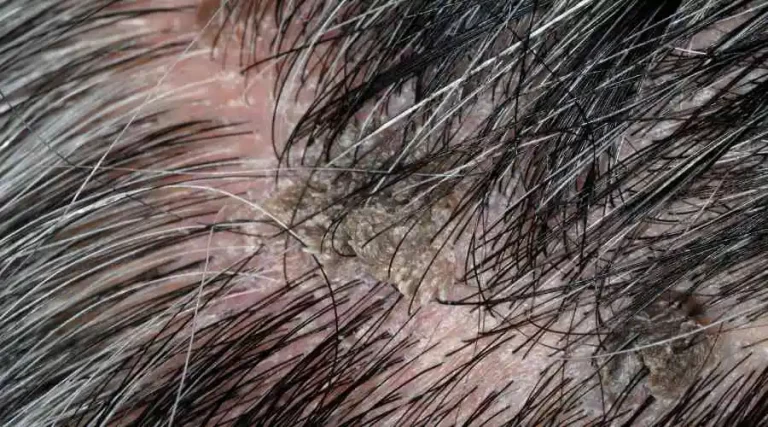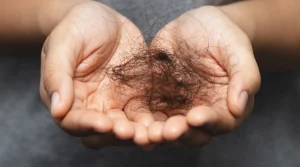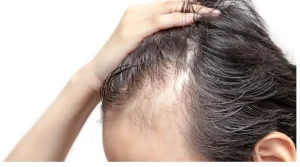Understanding Scalp Conditions
What is Dandruff?
Dandruff (seborrheic dermatitis) is a common scalp condition characterized by:
- Dry patches of scalp flaking off
- Caused by yeast overgrowth
- Potential allergic reactions to hair products
- Affects nearly everyone at some point
Dandruff Symptoms
- Mild scalp redness
- Slimy scalp
- Intense itching
- Whitish-to-yellowish flakes
- Dry, flaky skin worsening in cold, dry conditions
- Cradle cap in babies
- Potential skin infections from scratching
What is Scalp Psoriasis?
A chronic inflammatory condition that:
- Causes rapid proliferation of epidermal cells
- Creates cell accumulation on the scalp
- Affects approximately 50% of plaque psoriasis patients
Scalp Psoriasis Symptoms
- Red scaly bumps that grow in size
- Dandruff-like lesions and flakes
- Thick white or red patches with silvery scales
- Constant itching and scale peeling
- Potential significant hair loss in severe cases
Causes of Scalp Conditions
Dandruff Causes
- Excess sebum (scalp oil)
- Malassezia yeast
- Hormonal changes
- Cold, dry weather
- Harsh hair products
- Infrequent or excessive hair washing
- Genetic predisposition
Scalp Psoriasis Causes
- Immune system dysfunction
- White blood cells attacking skin cells
- Excessive production of new skin cells
- Genetic factors
- Racial prevalence:
- 3.6% in White populations
- 2.2% in Black populations
- 1.6% in Hispanic populations
Treatment Options
Dandruff Treatment
- Mild Cases:
- Gentle, non-harsh shampoos
- Over-the-counter dandruff shampoos
- Ingredients: Selenium sulfide, tar, zinc pyrithione
- Severe Cases:
- Prescription shampoos
- Topical antifungal treatments
- Ketoconazole shampoo
Scalp Psoriasis Treatment
- Mild Cases:
- Over-the-counter medicated shampoos
- Corticosteroid-containing products (e.g., Clobex)
- Severe Cases:
- Systemic treatments
- Oral medications (e.g., methotrexate)
- Potential hair transplant surgery
- Avoid triggers:
- Infections
- Stress
- Alcohol
- Tobacco
- Extreme temperatures
When to Consult a Hair Specialist
Seek professional help if you experience:
- Persistent symptoms after weeks of treatment
- Excessive scalp swelling or redness
- Pus or fluid discharge
- Symptoms spreading beyond the scalp
- Hair loss
- Recurring psoriasis flare-ups
- Ineffective treatments
Conclusion
While scalp psoriasis and dandruff may appear similar, they are distinct conditions requiring different approaches. Always consult a hair care specialist for accurate diagnosis and personalized treatment.
Expert Recommendation: Schedule a consultation with a hair specialist for proper evaluation and targeted treatment plan.





